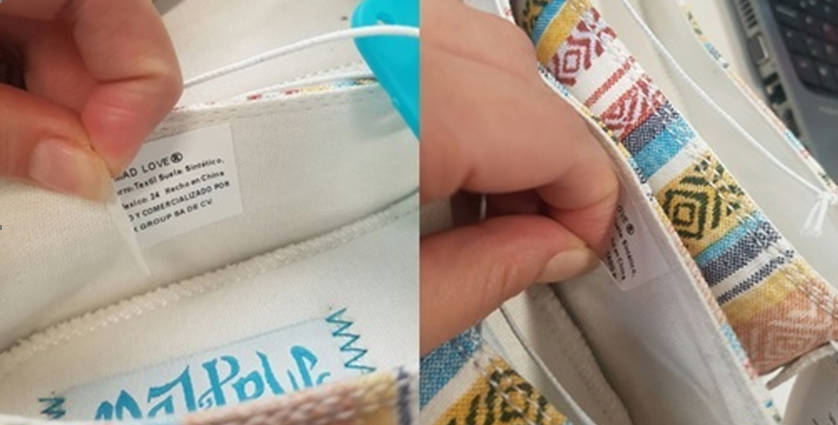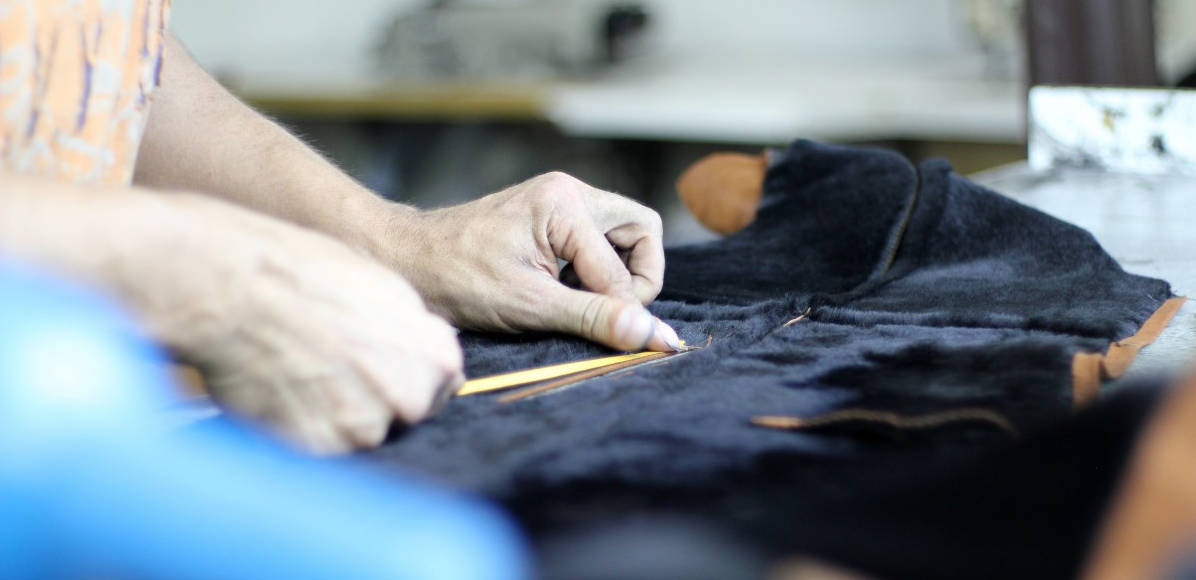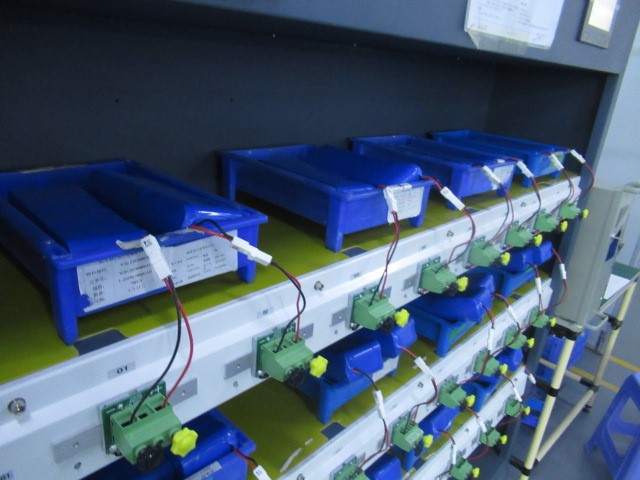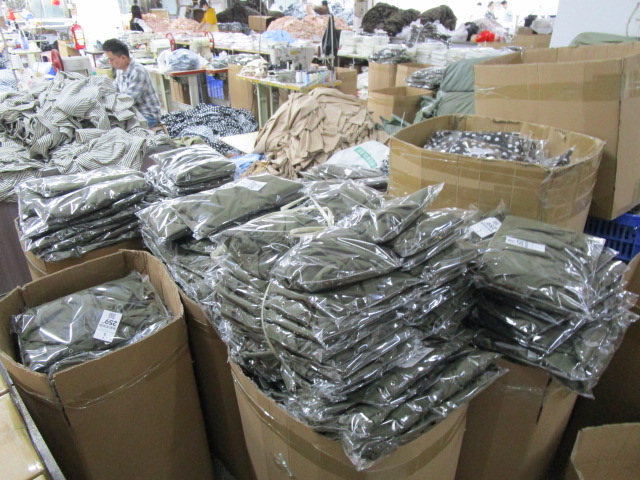
Contents
- 1 Navigation of third-party inspection company in China
- 2 What are the differences among these third-party inspection companies?
- 3 Service Cost:
- 4 Authority:
- 5 Professionalism:
- 6 How to Choose a Third-Party Inspection Company?
- 7 How to Book a Third-Party Inspection Service?
- 8 How does the third-party inspection agency handle some unexpected situations?
- 9 If the inspection results do not match the actual quality level of the goods, should the inspection company compensate?
- 10 Be cautious of 5 common mistakes made by third-party inspectors
- 11 How to Find an Affordable Chinese Third-Party Inspection Agency
- 12 How to Find an Affordable Third-Party Inspection Agency?
- 13 Considerations
A third-party inspection company is an independent professional organization separate from the manufacturer and buyer, responsible for evaluating and verifying products, processes, or services to ensure they meet specific standards, specifications, or contractual requirements.
If you place an order with a Chinese supplier, collaborating with a third-party inspection company is a wise choice. They provide objective and impartial assessment results to help ensure product quality, compliance, and reliability, meeting the needs and expectations of your customers.
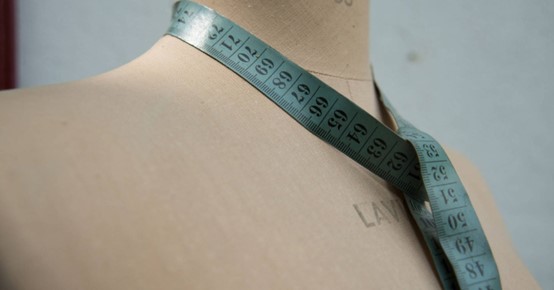
Here is a list of prominent third-party inspection companies that offer quality inspection, supplier audits, and related services in China:
| Num | Company | Services | Location | Contact |
| 01 | SGS | Product inspection, Testing & Certification, Training, Business Assurance, | Switzerland ,Beijing, Shanghai | https://www.sgsgroup.com.cn/en-cn |
| 02 | Intertek | Certification, assurance, testing, inspection | UK, Shengzhen | https://www.intertek.com/ |
| 03 | TUV SUD | Certification, testing, inspection, information and expert guidance | Germany/Beijing | https://www.tuvsud.com/en |
| 04 | BV | Certification, assurance, testing, inspection | France, Guangzhou | https://www.inspec-bv.com/ |
| 05 | QIMA | Testing, inspection, audit, certification, professional services, software solutions | Hong Kong | https://www.qima.com/ |
| 06 | Pro QC | Product quality, factory & supplier audits, management system audits | Shenzhen | https://proqc.com/ |
| 07 | V-trust | Quality Control, Lab Testing & Certificate, Supplier Evaluation | Guangzhou | https://www.v-trust.com/en/ |
| 08 | CICC | Inspection, Surveying, Testing, Calibration, Audit & Certification | Beijing | https://www.ccicsg.com/ |
| 09 | AQF | Inspection, Audit, Lab testing | Shenzhen | https://www.asiaqualityfocus.com/ |
| 10 | AQI | Product inspection, Factory audit, Value-Added Services, Product Testing & Certification | Hong Kong | https://aqiservice.com/ |
| 11 | HQTS | Quality Control Management, Audits, Compliance Testing | Fuzhou | https://www.hqts.com/ |
| 12 | TESTCOO | Inspection, Audit | Hangzhou | https://www.testcoo.com/en |
| 13 | VICC | Inspection, Audit, Lab testing, Engineering support, Certification & Consultation | Beijing | https://www.vicc.com/ |
| 14 | Novas QC | Inspection, Audit | Qingdao | https://www.novasqc.com/ |
| 15 | NBNQC | Inspection, Audit | Ningbo | https://www.nbnqc.com/ |
What are the differences among these third-party inspection companies?
These third-party inspection companies in China offer various quality control services, including both international and local firms. Although they can provide similar services, there are differences in terms of service cost, authority, and professionalism.
Service Cost:
The majority of inspection fees are quoted and settled based on Man-days. The inspection fees for international third-party companies are around USD 300/Man-day, while local Chinese third-party inspection costs are approximately USD 150-250/Man-day.
The higher cost of international authoritative third-party inspection companies is primarily due to their need to meet global recognition and standards, possess extensive technical expertise and cross-cultural capabilities, and enjoy a strong global brand reputation. These requirements and advantages contribute to relatively higher service costs. On the other hand, local Chinese third-party inspection companies offer more competitive pricing while meeting customer requirements effectively.
Authority:
International authoritative third-party inspection companies often possess internationally recognized qualifications and certifications, such as ISO certification, industry association, and government recognition. These certifications demonstrate their authority and professional level within the industry. The inspection reports and certificates issued by them play an important role in various scenarios, such as international trade where both buyers and sellers may require authoritative third-party inspection reports as transaction references. Additionally, certain industries or countries have strict legal requirements for product quality and safety standards, and authoritative inspection reports or certificates can mitigate legal risks and liabilities. Moreover, sellers use authoritative certifications as references for consumers to enhance purchasing confidence.
Professionalism:
International authoritative third-party inspection companies have experienced professional teams, including engineers, technical experts, scientists, etc., capable of providing customized solutions to clients in areas such as quality, sustainability, and risk management consulting services. They also utilize technology and data analysis to help clients optimize production processes and product development. However, for general quality inspection of import/export products, product testing, and supplier audits, their service levels are generally comparable.
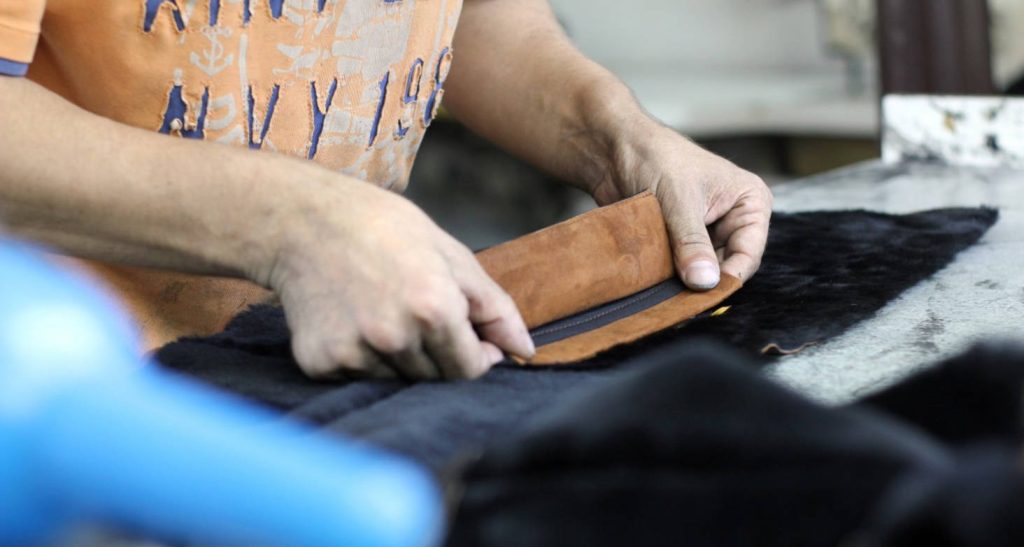
How to Choose a Third-Party Inspection Company?
As an international buyer purchasing goods from China, selecting a suitable third-party inspection company is crucial for quality control. Here’s how you can make the right choice:
1.Look for Well-Qualified and Reputable Companies: Ensure the selected company has a good reputation and extensive experience. You can gather information through online searches, industry recommendations, and client reviews.
2.Check Company Certifications and Qualifications: Ensure the third-party inspection company holds relevant certifications such as ISO accreditation, industry association memberships, etc.
3.Consider the Company’s Specialization: Ensure the inspection company has experience and expertise in the type of products you are sourcing, to provide tailored quality control services.
4.Understand Service Offerings and Pricing: Inquire about the services provided, types of reports, service fees, etc., to ensure they align with your needs and are reasonably priced.
5.Verify Coverage and Service Network: Confirm whether the company has a service network in the region where you source your goods, to ensure timely inspection and quality control.
6.Communication Skills and Service Attitude: Evaluate the company’s representatives for their service attitude, communication skills, and responsiveness to ensure smooth cooperation.
How to Book a Third-Party Inspection Service?
Once you have chosen a satisfactory third-party inspection service provider, you can proceed to book an inspection. Before doing so, prepare the necessary information:
- Supplier’s basic information and contact details
- Desired inspection date and location
- Type of inspection required
- Product details (including name, quantity, label & logo, packaging information, etc.)
- Any other specific requirements
There are two ways to book an inspection with a third-party company:
- Register for a free account on the company’s official website, then fill in the required information under the “Booking” section. Once the service is accepted, you will receive a confirmation email.
- Without registration, simply fill out the company’s booking form and return it via email. Once the service is accepted, you will receive a confirmation email.
Download our Inspection Report
How does the third-party inspection agency handle some unexpected situations?
Ensuring fairness and ethics while minimizing disruptions to the quality control plan. Here’s how we handle them at NBNQC:
- Delayed Inspection Date: The client or supplier may notify us in advance that due to production progress, an adequate quantity of products cannot be ready for inspection on the scheduled date, thus requesting a postponement of the inspection. As long as they contact us to change the inspection date with at least one day’s notice, we will not charge any additional fees.
- Insufficient Quantity of Completed Goods: We maintain our inspection procedures and sampling quantities regardless of the actual quantity of goods completed, accurately recording the actual number.
- Supplier Refusal for Inspection: Our coordinators promptly engage with the supplier or client to effectively communicate and address concerns, aiming to resolve misunderstandings. If necessary, we pause the inspection until all issues are resolved, then resume.
- Inspector Delayed Arrival at Factory: We remind the inspector to promptly reach the factory. If they cannot due to unavoidable circumstances, we immediately dispatch an alternate inspector to the site.
- Container Loading Supervision Overtime:
- Our standard working hours end at 6:00 PM (container loading must be completed before this time).
- From 6:00 PM to 9:00 PM: an additional 0.5 man-day will be charged
- From 9:00 PM to 11:00 PM: an additional 1 man-day will be charged
- After 11:00 PM: the cost will be discussed with the client

If the inspection results do not match the actual quality level of the goods, should the inspection company compensate?
As a third-party professional organization, the responsibility of the inspection company is to provide independent and objective inspection services to ensure that products meet specific standards and requirements. If the inspection results do not match the actual quality level, and this discrepancy is due to errors or negligence on the part of the inspection company, they may be required to assume corresponding liability.
Industry practices and standards also support the notion that inspection companies should be responsible for their inspection results within a reasonable scope, particularly when their professional judgment or actions lead to losses for the client. In such cases, compensation typically amounts to 3-5 times the inspection fee.
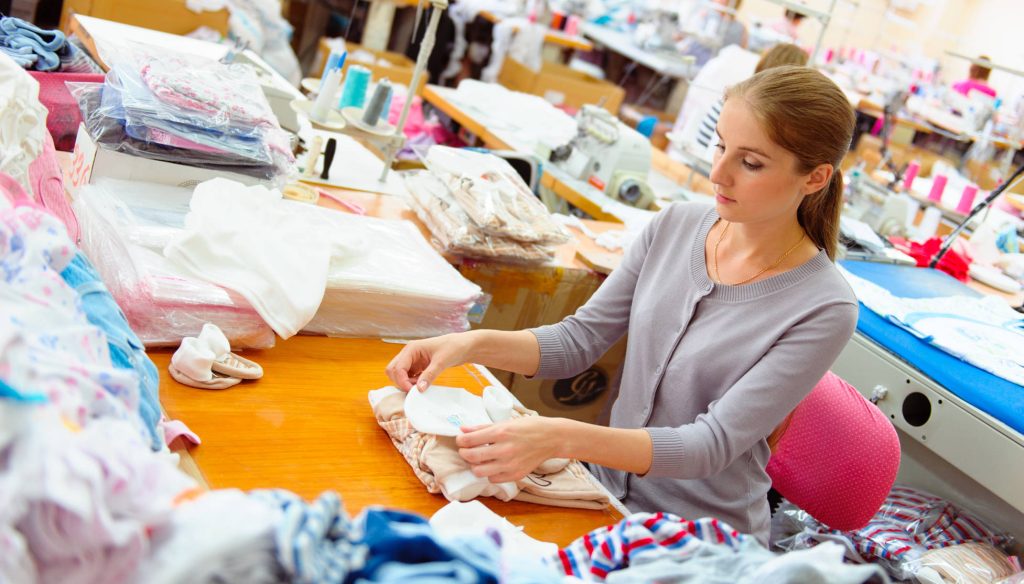
Be cautious of 5 common mistakes made by third-party inspectors
When it comes to third-party inspections, certain mistakes can have significant consequences, impacting both the quality of inspection results and the relationships between buyers and sellers. Here are five common errors that inspectors can make, along with strategies to prevent them:
1. Bribery and Corruption:
The most egregious mistake an inspector can make is succumbing to bribery or corruption. This compromises the objectivity and fairness of the inspection process, allowing substandard goods to be shipped to customers. To avoid this, inspectors must adhere strictly to ethical standards and refuse any form of inducement.
2. Overly Rigorous Inspections:
Inspectors sometimes err by applying excessively strict criteria, magnifying minor product defects even when the overall quality meets customer requirements and safety standards. This can lead to unnecessary delays, extra rework, and strain on business relationships. Inspectors should exercise balanced judgment, focusing on critical issues while considering the product’s overall compliance.
3. Ignoring Critical Issues:
Failing to address significant issues, such as legal requirements in destination markets or known quality concerns from previous complaints, can result in serious consequences. Inspectors must thoroughly understand product details and inspection requirements before beginning the evaluation to ensure all relevant aspects are covered.
4. Lack of Communication with Suppliers:
Poor communication with suppliers can lead to misunderstandings, such as using incorrect samples or color swatches, or inspecting the wrong batch of products. Inspectors should maintain clear and open communication with suppliers to prevent such errors and ensure accurate inspections.
5. Lack of Objective Thinking:
Inspectors sometimes fall into the trap of complacency, assuming that because previous batches passed inspection, the current one will as well. However, each batch carries its own risk of non-conformities. Inspections must follow strict procedures rather than relying solely on past experiences. Objective assessment is key to maintaining inspection integrity.
In conclusion, third-party inspectors play a crucial role in safeguarding product quality and customer satisfaction. By avoiding these common mistakes and adhering to best practices, inspectors can uphold the integrity of their inspections and contribute positively to the success of buyer-supplier relationships. Clear communication, ethical conduct, and objective evaluation are essential pillars of effective third-party inspections.
How to Find an Affordable Chinese Third-Party Inspection Agency
Finding an affordable and reliable Chinese third-party inspection agency requires some strategies and considerations to ensure you receive high-quality service. Here are steps and suggestions:
How to Find an Affordable Third-Party Inspection Agency?
- Online Search and Comparison: Use search engines to find Chinese third-party inspection service providers. Platforms like Alibaba, Global Sources, and Made-in-China.com also list numerous suppliers.
- Request Quotes and Compare Prices: Contact multiple agencies to get detailed quotes and compare them. Ensure the quotes include all related fees to avoid hidden costs later.
- Check Customer Reviews and Case Studies: Read customer reviews and case studies. This information helps you understand other clients’ satisfaction levels and the quality of services provided.
- Use Industry Networks and Recommendations: Consult peers or industry associations for recommendations. Word-of-mouth is often a reliable way to assess service quality.
- Attend Trade Shows: Attend industry trade shows in China to meet potential inspection agencies face-to-face and negotiate services and prices directly.
Considerations
- Qualifications and Certifications: Ensure the inspection agency has necessary qualifications and certifications, such as ISO 9001, ISO 17020, etc. These certifications indicate the agency has a competent quality management system and inspection capabilities.
- Experience and Specialization: Choose an inspection agency with extensive experience in your industry. Specialization means they better understand specific quality standards and common issues.
- Clear Communication and Reporting: Ensure the inspection agency can provide clear, detailed inspection reports and communicate smoothly. Reports should include identified issues, recommendations, and necessary photographic evidence.
- Language Proficiency: The inspection agency should be capable of communicating and reporting in English to avoid misunderstandings due to language barriers.
- Service Range and Flexibility: Understand the scope of services the inspection agency offers, including factory audits, product testing, pre-shipment inspections, etc. Choose an agency that can provide comprehensive services and flexibility to better meet your needs.
- Customer Support and Response Time: Evaluate the agency’s customer support and response time. A good inspection agency should be able to respond quickly to client needs and issues.
You Might Also Like
- Understanding Factory Audit Services In China
- Full Inspection In China
- Quality Inspection In China: Ensuring Product Excellence
- Quality Control In China
- Product Inspection In China: Ensure Consistent Quality And Compliance
- Navigating Quality Control: Understanding Pre-Shipment Inspection In China
- Container loading supervision in China


